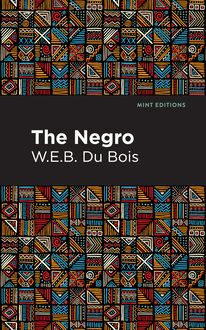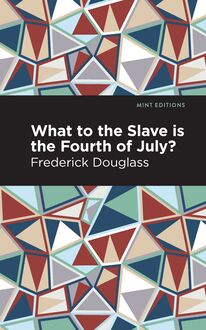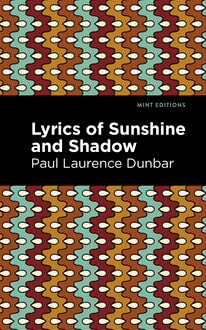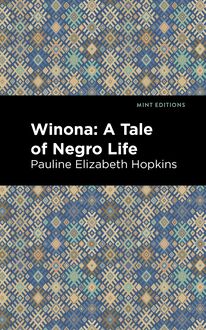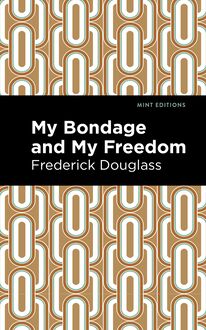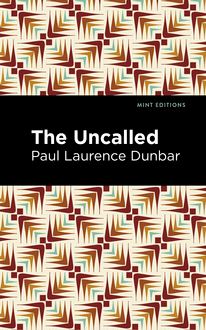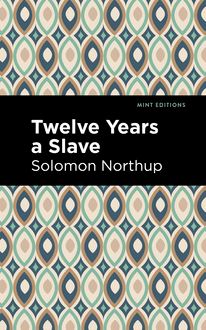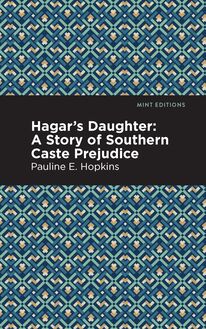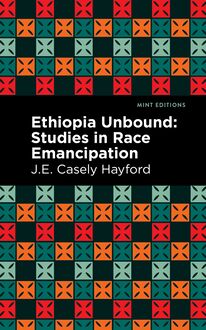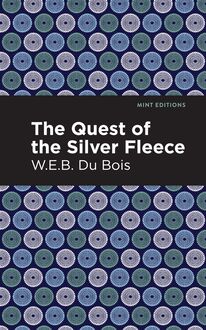-
 Univers
Univers
-
 Ebooks
Ebooks
-
 Livres audio
Livres audio
-
 Presse
Presse
-
 Podcasts
Podcasts
-
 BD
BD
-
 Documents
Documents
-
- Cours
- Révisions
- Ressources pédagogiques
- Sciences de l’éducation
- Manuels scolaires
- Langues
- Travaux de classe
- Annales de BEP
- Etudes supérieures
- Maternelle et primaire
- Fiches de lecture
- Orientation scolaire
- Méthodologie
- Corrigés de devoir
- Annales d’examens et concours
- Annales du bac
- Annales du brevet
- Rapports de stage
La lecture à portée de main
Vous pourrez modifier la taille du texte de cet ouvrage
Découvre YouScribe en t'inscrivant gratuitement
Je m'inscrisDécouvre YouScribe en t'inscrivant gratuitement
Je m'inscrisEn savoir plus
Vous pourrez modifier la taille du texte de cet ouvrage
En savoir plus

Description
Hagar’s Daughter: A Story of Southern Caste Prejudice (1901-1902) is a novel by African American author Pauline Elizabeth Hopkins. Originally published in The Colored American Magazine, America’s first monthly periodical covering African American arts and culture, Hagar’s Daughter: A Story of Southern Caste Prejudice is a groundbreaking novel. Addressing themes of race and slavery through the lens of romance, Hopkins’ novel is thought to be the first detective novel written by an African American author.
Set just before the outbreak of the American Civil War, Hagar’s Daughter: A Story of Southern Caste Prejudice takes place on the outskirts of Baltimore where, on neighboring estates, a man and woman fall in love. When Hagar Sargeant returns home after four years of study at a seminary in the North, she meets Ellis Enson, an older gentleman and self-made man who resides at the stately Enson Hall. After a brief courtship, the pair are engaged to be married. As the wedding approaches, Hagar’s mother—who has controlled the family estate since her husband’s death—dies unexpectedly, leaving Hagar the home and its accompanying grounds. Despite this tragic loss, Ellis and Hagar look forward to starting a family together—but when a man from the deep south arrives claiming the young woman was born a slave, their lives are changed forever. Hagar’s Daughter: A Story of Southern Caste Prejudice is a thrilling work of romance and detective fiction from a true pioneer of American literature, a woman whose talent and principles afforded her the vision necessary for illuminating the injustices of life in a nation founded on slavery and genocide.
With a beautifully designed cover and professionally typeset manuscript, this edition of Pauline Elizabeth Hopkins’ Hagar’s Daughter: A Story of Southern Caste Prejudice is a classic work of African American literature reimagined for modern readers.
Sujets
Informations
| Publié par | Mint Editions |
| Date de parution | 24 mars 2021 |
| Nombre de lectures | 0 |
| EAN13 | 9781513285153 |
| Langue | English |
| Poids de l'ouvrage | 2 Mo |
Informations légales : prix de location à la page 0,0500€. Cette information est donnée uniquement à titre indicatif conformément à la législation en vigueur.
Extrait
Hagar’s Daughter
A Story of Southern Caste Prejudice
Pauline Elizabeth Hopkins
Hagar’s Daughter: A Story of Southern Caste Prejudice was first published in 1902.
This edition published by Mint Editions 2021.
ISBN 9781513280134 | E-ISBN 9781513285153
Published by Mint Editions®
minteditionsbooks.com
Publishing Director: Jennifer Newens
Design & Production: Rachel Lopez Metzger
Project Manager: Micaela Clark
Typesetting: Westchester Publishing Services
C ONTENTS I II III IV V VI VII VIII IX X XI XII XIII XIV XV XVI XVII XVIII XIX XX XXI XXII XXIII XXIV XXV XXVI XXVII XXVIII XXIX XXX XXXI XXXII XXXIII XXXIV XXXV XXXVI XXXVII XXXVIII XXXIX
I
I n the fall of 1860 a stranger visiting the United States would have thought that nothing short of a miracle could preserve the union of states so proudly proclaimed by the signers of the Declaration of Independence, and so gloriously maintained by the gallant Washington.
The nomination of Abraham Lincoln for the presidency by the Republican party was inevitable. The pro-slavery Democracy was drunk with rage at the prospect of losing control of the situation, which, up to that time, had needed scarcely an effort to bind in riveted chains impenetrable alike to the power of man or the frowns of the Godhead; they had inaugurated a system of mob-law and terrorism against all sympathizers with the despised party. The columns of partisan newspapers teemed each day in the year with descriptions of disgraceful scenes enacted North and South by pro-slavery men, due more to the long-accustomed subserviency of Northern people to the slaveholders than to a real, personal hatred of the Negro.
The free negroes North and South, and those slaves with the hearts of freemen who had boldly taken the liberty denied by man, felt the general spirit of unrest and uncertainty which was spreading over the country to such an alarming extent. The subdued tone of the liberal portion of the press, the humiliating offers of compromise from Northern political leaders, and the numerous cases of surrendering fugitive slaves to their former masters, sent a thrill of mortal fear into the very heart of many a household where peace and comfort had reigned for many years. The fugitive slave had perhaps won the heart of some Northern free woman; they had married, prospered, and were happy. Now came the haunting dread of a stealthy tread, an ominous knock, a muffled cry at midnight, and the sunlight of the new day would smile upon a broken-hearted woman with baby hands clinging to her skirts, and children’s voices asking in vain for their father lost to them forever. The Negro felt that there was no safety for him beneath the Stars and Stripes, and, so feeling, sacrificed his home and personal effects and fled to Canada.
The Southerners were in earnest, and would listen to no proposals in favor of their continuance in the Union under existing conditions; namely, Lincoln and the Republican party. The vast wealth of the South made them feel that they were independent of the world. Cotton was not merely king; it was God. Moral considerations were nothing. Drunk with power and dazzled with prosperity, monopolizing cotton and raising it to the influence of a veritable fetich, the authors of the Rebellion did not admit a doubt of the success of their attack on the Federal government. They dreamed of perpetuating slavery, though all history shows the decline of the system as industry, commerce, and knowledge advance. The slaveholders proposed nothing less than to reverse the currents of humanity, and to make barbarism flourish in the bosom of civilization.
The South argued that the principle of right would have no influence over starving operatives; and England and France, as well as the Eastern States of the Union, would stand aghast, and yield to the master stroke which should deprive them of the material of their labor. Millions of the laboring class were dependent upon it in all the great centers of civilization; it was only necessary to wave this sceptre over the nations and all of them would acknowledge the power which wielded it. But, alas! the supreme error of this anticipation was in omitting from the calculation the power of principle. Right still had authority in the councils of nations. Factories might be closed, men and woman out of employment, but truth and justice still commanded respect among men. The pro-slavery men in the North encouraged the rebels before the breaking out of the war. They promised the South that civil war should reign in every free state in case of an uprising of the Southern oligarchy, and that men should not be permitted to go South to put down their brothers in rebellion.
Weak as were the Southern people in point of numbers and political power, compared with those of the North, yet they easily persuaded themselves that they could successfully cope in arms with a Northern foe, whom they affected to despise for his cowardly and mercenary disposition. They indulged the belief, in proud confidence, that their great political prestige would continue to serve them among party associates at the North, and that the counsels of the adversary would be distracted and his power weakened by the effects of dissension.
When the Republican banner bearing the names of Abraham Lincoln for President and Hannibal Hamlin for Vice-President flung its folds to the breeze in 1860, there was a panic of apprehension at such bold manoeuvering; mob-law reigned in Boston, Utica and New York City, which witnessed the greatest destruction of property in the endeavor to put down the growing public desire to abolish slavery. Elijah Lovejoy’s innocent blood spoke in trumpet tones to the reformer from his quiet grave by the rolling river. William Lloyd Garrison’s outraged manhood brought the blush of shame to the cheek of the honest American who loved his country’s honor better than any individual institution. The memory of Charles Sumner’s brutal beating by Preston Brooks stamped the mad passions of the hour indelibly upon history’s page. Debate in the Senate became fiery and dangerous as the crisis approached in the absorbing question of the perpetuation of slavery.
At the South laws were enacted abridging the freedom of speech and press; it was difficult for Northerners to travel in slave states. Rev. Charles T. Torrey was sentenced to the Maryland penitentiary for aiding slaves to escape; Jonathan Walker had been branded with a red-hot iron for the same offense. In the midst of the tumult came the “Dred Scott Decision,” and the smouldering fire broke forth with renewed vigor. Each side waited impatiently for the result of the balloting.
In November the Rubicon was passed, and Abraham Lincoln was duly elected President contrary to the wishes and in defiance of the will of the haughty South. There was much talk of a conspiracy to prevent by fraud or violence a declaration of the result of the election by the Vice-President before the two Houses, as provided by law. As the eventful day drew near patriotic hearts were sick with fear or filled with forebodings. Would the certificates fail to appear; would they be wrested by violence from the hands ordered to bear them across the rotunda from the Senate Chamber to the hall of the House, or would they be suppressed by the only official who could open them, John C. Breckenridge of Kentucky, himself a candidate and in full sympathy with the rebellion.
A breathless silence, painfully intense, reigned in the crowded chamber as the Vice-President arose to declare the result of the election. Six feet in height, lofty in carriage, youthful, dashing, he stood before them pale and nervous. The galleries were packed with hostile conspirators. It was the supreme moment in the life of the Republic. With unfaltering utterance his voice broke the oppressive stillness:
“I therefore declare Abraham Lincoln duly elected President of the United States for the term of four years from the fourth of March next.”
It was the signal for secession, and the South let loose the dogs of war.
II
D uring the week preceding the memorable 20th of December, 1860, the streets of Charleston, S.C., were filled with excited citizens who had come from all parts of the South to participate in the preparations for seceding from the Union. The hotels were full; every available space was occupied in the homes of private citizens. Bands paraded the streets heading processions of excited politicians who came as delegates from every section south of Mason and Dixon’s line; there was shouting and singing by the populace, liberally mingled with barrelhead orations from excited orators with more zeal than worth; there were cheers for the South and oaths for the government at Washington.
Scattered through the crowd traders could be seen journeying to the far South with gangs of slaves chained together like helpless animals destined for the slaughter-house. These slaves were hurriedly sent off by their master in obedience to orders from headquarters, which called for the removal of all human property from the immediate scene of the invasion so soon to come. The traders paused in their hurried journey to participate in the festivities which ushered in the birth of the glorious Confederate States of America. Words cannot describe the scene.
“The wingèd heralds by command
Of sovereign power, with awful ceremony
And trumpet sound, proclaimed
A solemn council forthwith to be held
At Pandæmonium, the high capital
Of Satan and his peers.”
Among the traders the most conspicuous was a noted man from St. Louis, by the name of Walker. He was the terror of the whole Southwest among the Negro population, bond and free; for it often happened that free persons were kidnapped and sold to the far South. Uncouth, ill-bred, hardhearted, illiterate, Walker had started in St. Louis as a dray-driver, and now found himself a rich man. He was a repulsive-looking person, tall, le
-
 Univers
Univers
-
 Ebooks
Ebooks
-
 Livres audio
Livres audio
-
 Presse
Presse
-
 Podcasts
Podcasts
-
 BD
BD
-
 Documents
Documents
-
Jeunesse
-
Littérature
-
Ressources professionnelles
-
Santé et bien-être
-
Savoirs
-
Education
-
Loisirs et hobbies
-
Art, musique et cinéma
-
Actualité et débat de société
-
Jeunesse
-
Littérature
-
Ressources professionnelles
-
Santé et bien-être
-
Savoirs
-
Education
-
Loisirs et hobbies
-
Art, musique et cinéma
-
Actualité et débat de société
-
Actualités
-
Lifestyle
-
Presse jeunesse
-
Presse professionnelle
-
Pratique
-
Presse sportive
-
Presse internationale
-
Culture & Médias
-
Action et Aventures
-
Science-fiction et Fantasy
-
Société
-
Jeunesse
-
Littérature
-
Ressources professionnelles
-
Santé et bien-être
-
Savoirs
-
Education
-
Loisirs et hobbies
-
Art, musique et cinéma
-
Actualité et débat de société
- Cours
- Révisions
- Ressources pédagogiques
- Sciences de l’éducation
- Manuels scolaires
- Langues
- Travaux de classe
- Annales de BEP
- Etudes supérieures
- Maternelle et primaire
- Fiches de lecture
- Orientation scolaire
- Méthodologie
- Corrigés de devoir
- Annales d’examens et concours
- Annales du bac
- Annales du brevet
- Rapports de stage
